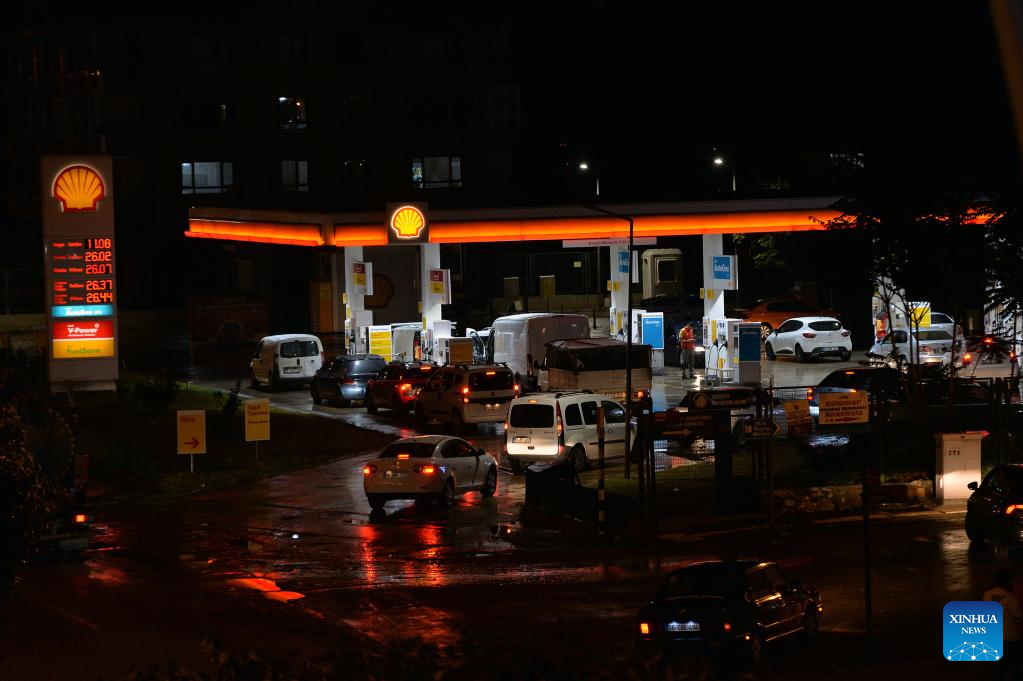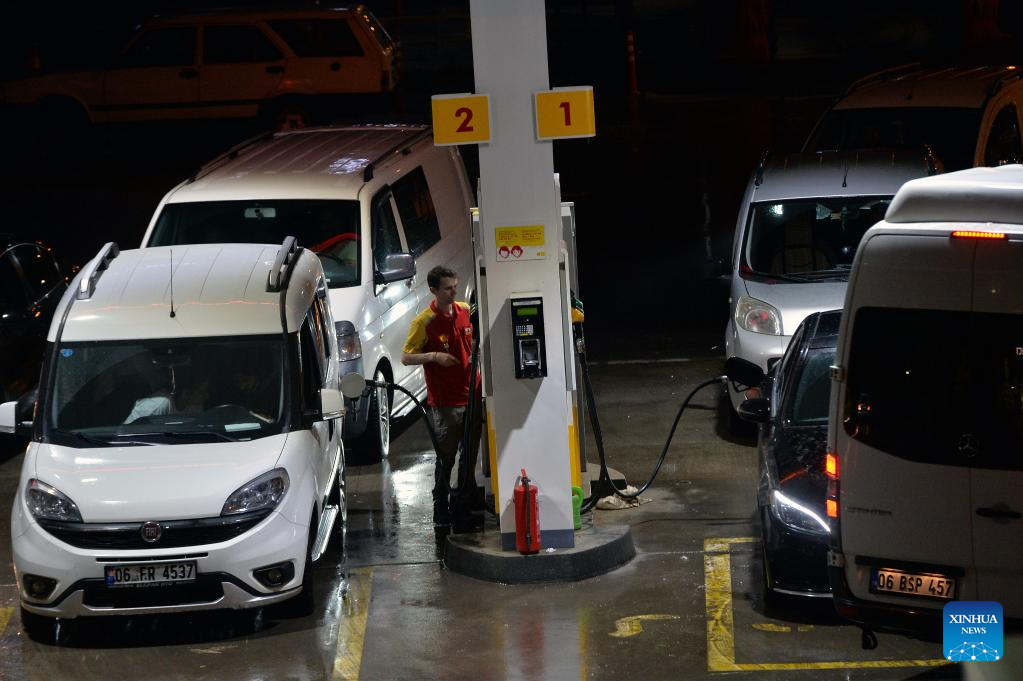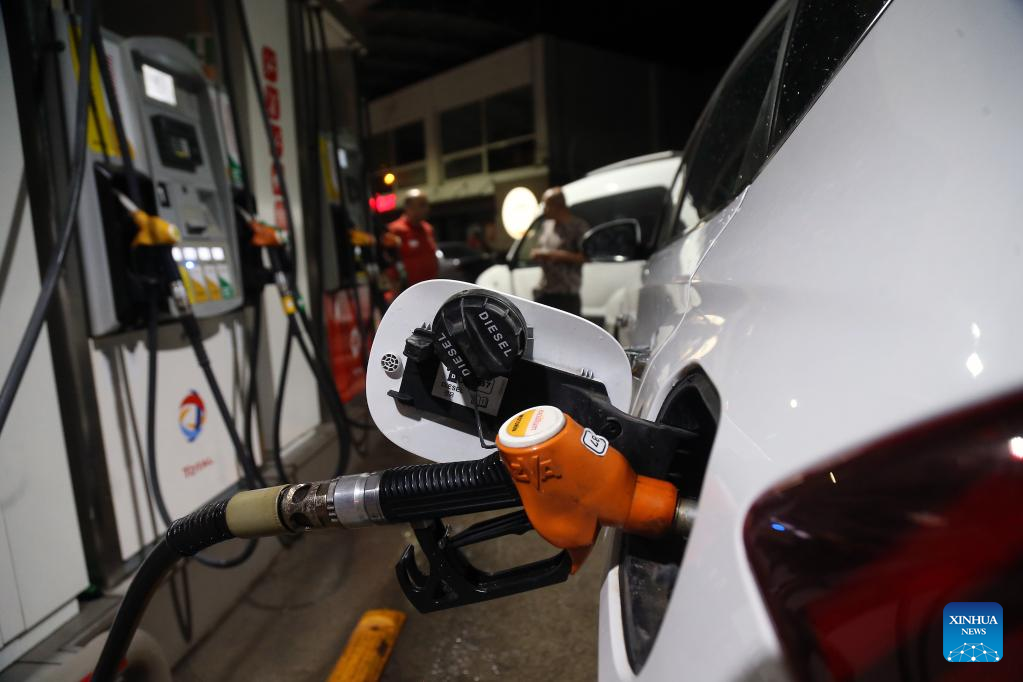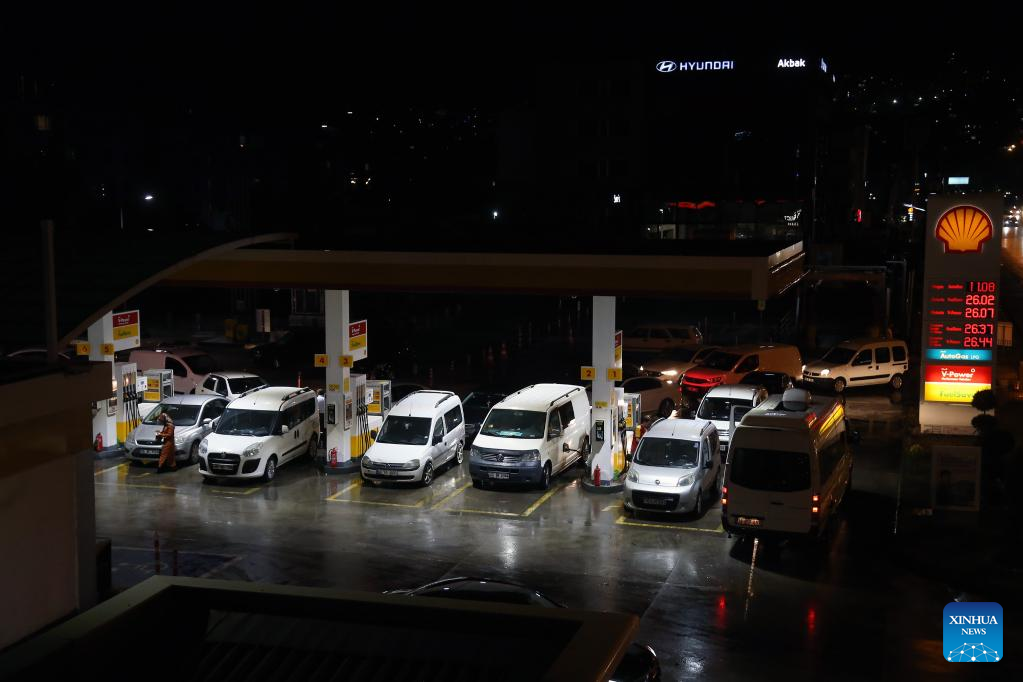
Cars wait to be refueled at a gas station at night before the price of petrol rises again in Ankara, Turkey, June 7, 2022. (Photo by Mustafa Kaya/Xinhua)
by Burak Akinci
ANKARA, June 8 (Xinhua) -- Repeated fuel hikes in gasoline prices are a headache for Fatih Hosta, who runs a coach travel and airport shuttle firm in Turkey's capital city of Ankara.
"Our sector is facing many challenges, and one of them is surely fuel price hikes, " he remarked as Turkey began a new round of diesel fuel price hikes at midnight Tuesday, with prices rising by 1.93 Turkish Liras (0.11 U.S. dollars) to reach 28 Liras per liter.
Energy prices have been rising in Turkey, which relies largely on imports, due to geopolitical factors such as the Russia-Ukraine conflict. Meanwhile, the price spikes have been worsened by hefty fuel taxes and a severe devaluation of the Turkish lira.
"The sharp depreciation of our currency is at the core of the issue. There is a direct link between the depreciation of the lira against the U.S. dollar and crude oil price hike," Hosta said.
Turkey's lira accelerated its downward spiral on Wednesday after Turkish President Recep Tayyip Erdogan reaffirmed on Monday his pledge to further cut interest rates and ease borrowing.
One dollar was traded at 17.15 Turkish liras at 13:05 local time (10:05 GMT), losing 2.5 percent of its value in a single day, bringing its total losses to almost 100 percent compared with a year ago.
In Turkey, gasoline prices have risen by 224 percent in the past year, while diesel prices have risen by 238 percent, putting a strain on both private car owners and public transportation.
"Car owners are not driving their private cars as much as they used to," said Hosta, while calling on the state to provide business owners with tax breaks on fuel.
Due to rising energy costs, major cities such as Istanbul, Ankara and Izmir have raised public transportation fares by up to 30 percent, dealing a new blow to households trying to make ends meet.
"Continuous gasoline price spikes have hurt the entire transportation sector," said 65-year-old taxi driver Kemal Erdem.
As a taxi driver, Erdem said his income was heavily eroded by the fuel hikes. "Around 70 percent of our revenue goes to fuel needs. We call on our officials to find a solution to this problem. Perhaps if they (government) decided to lower taxes on fuel, it will have a positive effect," he said.
Rising energy prices, coupled with higher food expenses and other factors, have pushed Turkey's inflation to 73.5 percent in May, the highest in 24 years, despite government subsidies and tax cuts on essential commodities.
The operational costs of filling stations have also increased as a result of high inflation. Around 1,000 of the country's 13,000 filling stations have reportedly been closed due to rising operating costs, particularly in places outside of metropolitan centers. ■

A worker refuels cars at a gas station in Ankara, Turkey, June 7, 2022. (Photo by Mustafa Kaya/Xinhua)

A car is refueled at a gas station in Ankara, Turkey, June 7, 2022. (Photo by Mustafa Kaya/Xinhua)

Cars are refueled at a gas station at night before the price of petrol rises again in Ankara, Turkey, June 7, 2022. (Photo by Mustafa Kaya/Xinhua)



